How To Know If Someone Blocked You On iMessage? 5 Secret Hacks!
Apr 16, 2025

Apr 16, 2025

Apr 16, 2025

Apr 15, 2025

Apr 11, 2025

Apr 11, 2025

Apr 11, 2025

Apr 08, 2025

Mar 29, 2025
Sorry, but nothing matched your search "". Please try again with some different keywords.

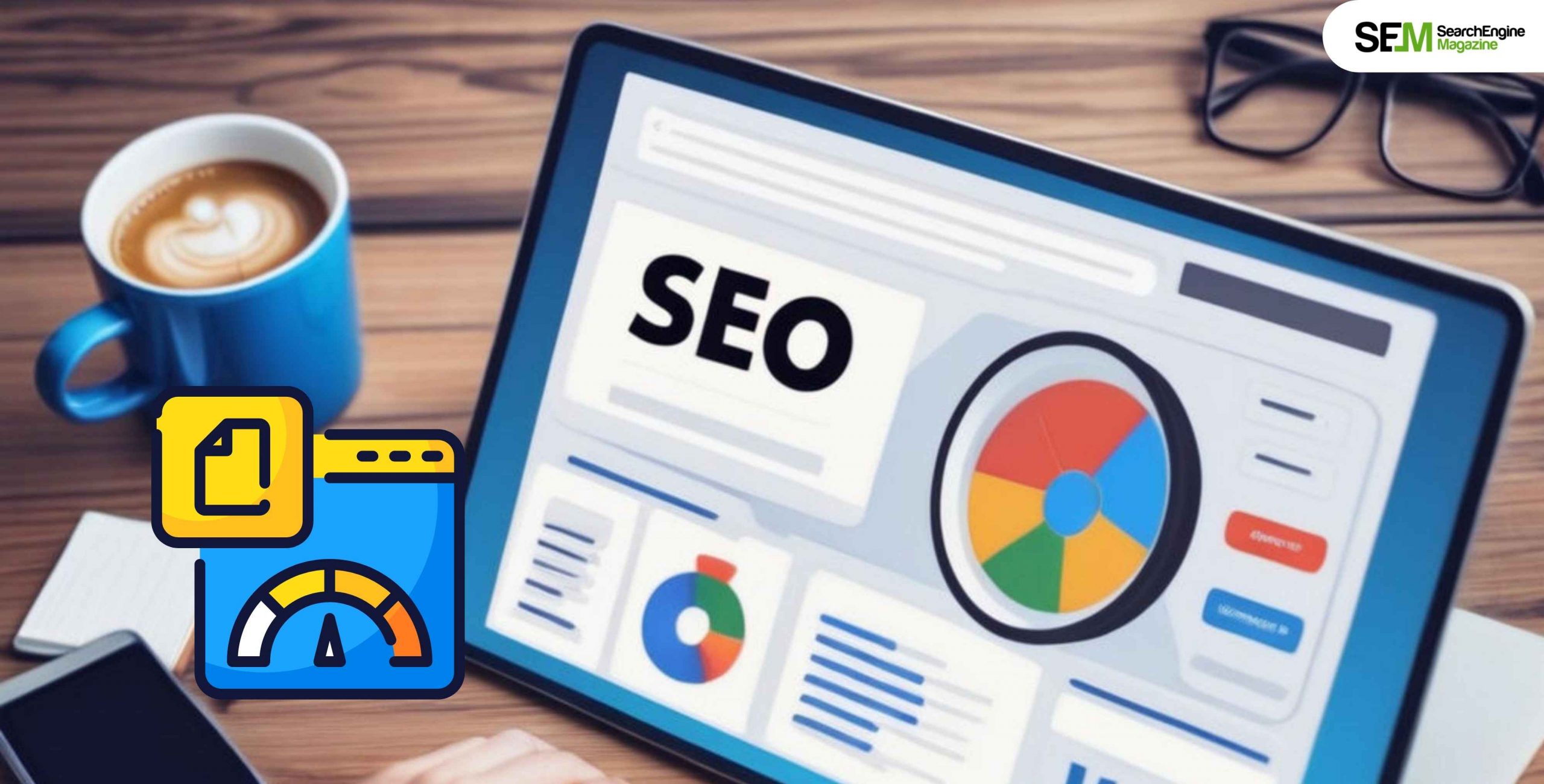
Page authority is one of the most important metrics in the SEO world and refers to the chances a particular webpage will rank well on SERPs or search engine result pages.
Simply put, it’s how easily a page can get higher visibility and attract organic traffic. This article will explore what Page Authority is, how it is calculated, and why it forms a core part of SEO.
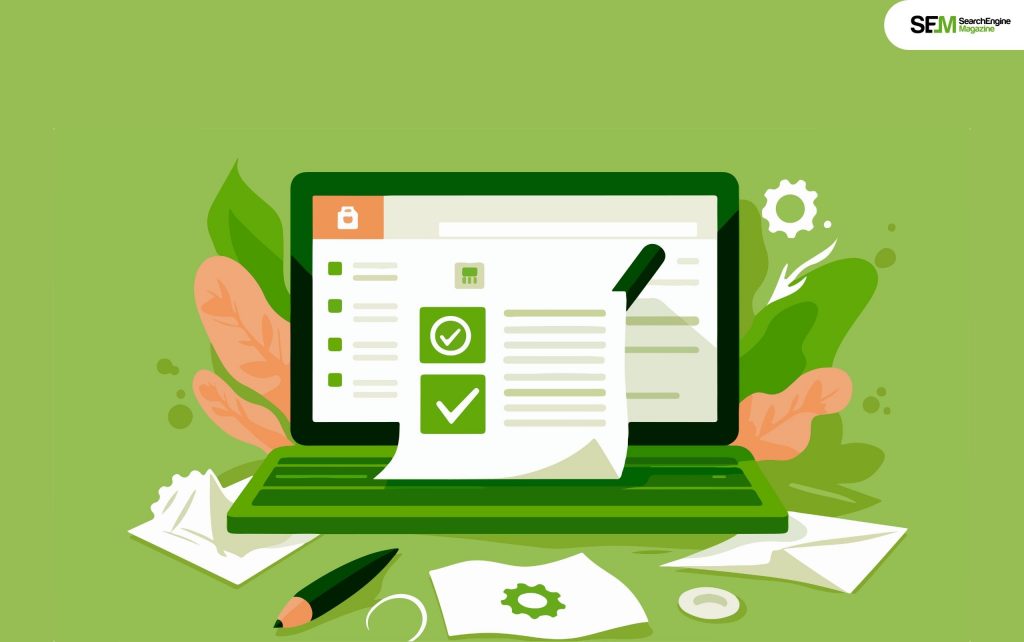
Page Authority is essentially the score from Moz world’s leading SEO software provider- which suggests just how good a given webpage is likely to rank in search results.
The scores range from 0 to 100. The higher the score is, the more likely it will rank a web page on the high side of Google’s search results.
Page Authority is like Domain Authority except for measuring the overall strength of the entire domain. While DA would measure how strong a whole domain is, Page Authority focuses on one specific webpage’s ranking capability.
Page Authority is computed and measured by various factors like the number and quality of links going to the page, its content, and other on-page SEO.
Worth mentioning here is that Page Authority is not a ranking factor directly used by search engines, but it indicates how competitive a page is in its niche.
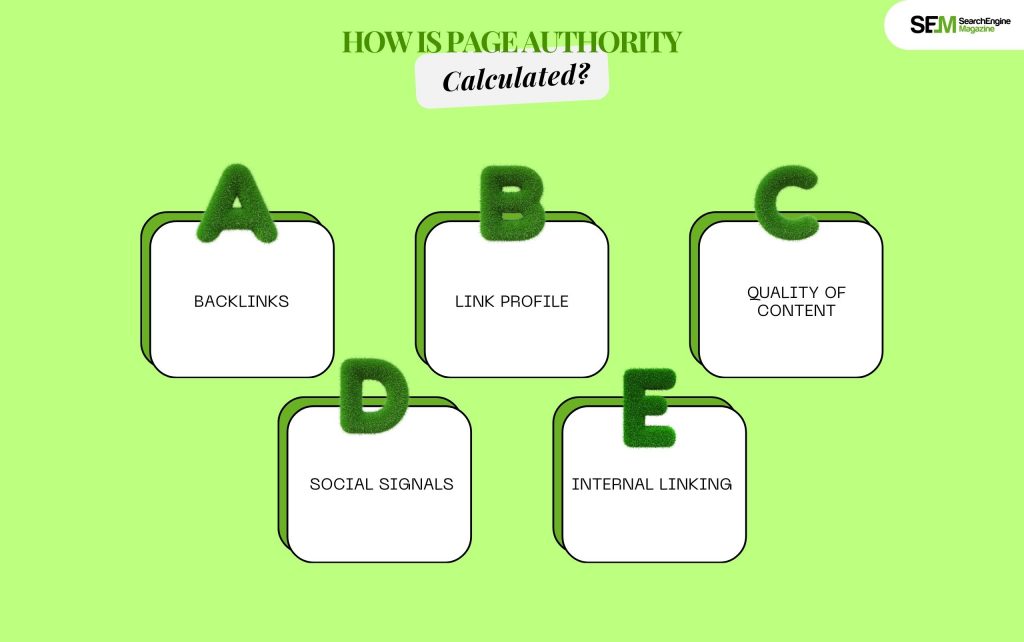
Page Authority is calculated using an algorithm based on machine learning while considering various factors. Amongst those most significant ones include:
Moz calculates PA with a logarithmic scale, meaning pushing a page’s PA from 20 to 30 is easier than pushing it from 70 to 80. Essentially, the higher your Page Authority score, the more effort it takes to improve.
Although related, Page Authority and Domain Authority measure different aspects of SEO performance:
Page Authority (PA): This is the ranking power of a particular single page. It estimates how likely a specific page rank is, considering factors such as backlinks, content, and inner links.
Domain Authority: It measures the total strength of an entire domain. This calculates its ability to rank high in the search results taken as a unit. The age of the domain and the total backlink profile of the domain impact DA.
PA is page-specific, while DA is an aggregate domain-wide measure. A website can have a high DA but low PA on pages if those pages do not have sufficient authority or relevant backlinks.
Conversely, a page can have a high PA even if the overall domain authority is low only because it has quality backlinks and content.
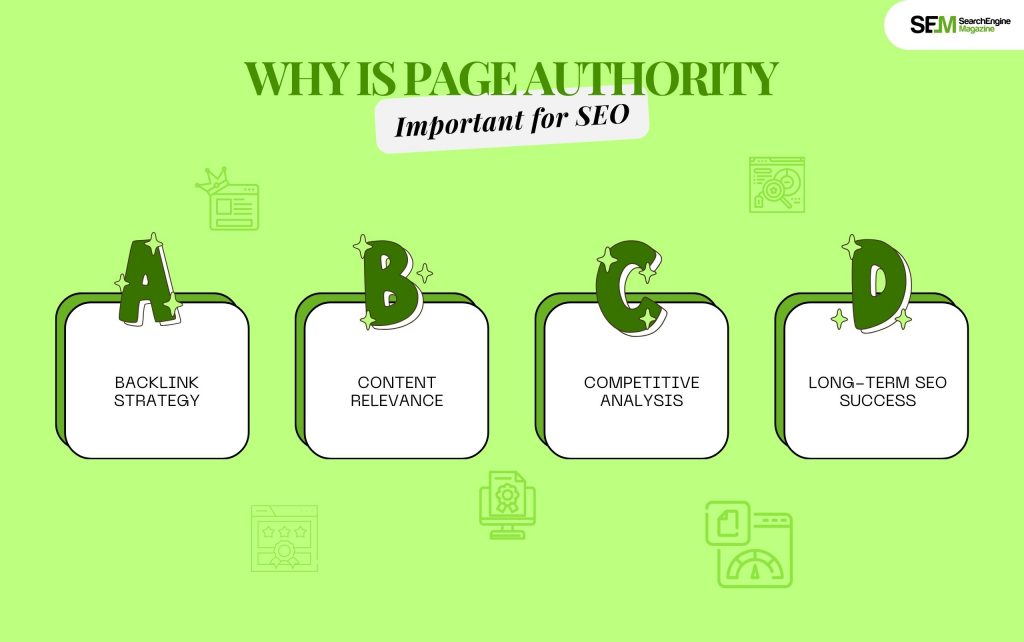
PA is important as it predicts ranking potential; PA is a great indicator of how well a page will rank in SERPs. A high PA indicates that a page has the authority level needed for ranking well. Hence, this metric contributes to achieving SEO success.
PA is directly related to backlinks. The more quality backlinks a page has, the more likely it is to have Page Authority. Enhancing the ranking ability of the page would necessitate a strong backlink profile.
Page Authority will generally reflect the quality of content. Well-crafted, relevant, and authoritative content will likely attract backlinks that enhance Page Authority and improve search engine rankings.
Monitoring Page Authority will enable SEO professionals to know how their pages are compared to the competition. A higher PA in competitors may mean the need for better content, backlinks, or even general optimization.
A higher PA will make a page’s ranking easier over time. It is harder to lose rankings when they are low, and vice versa.
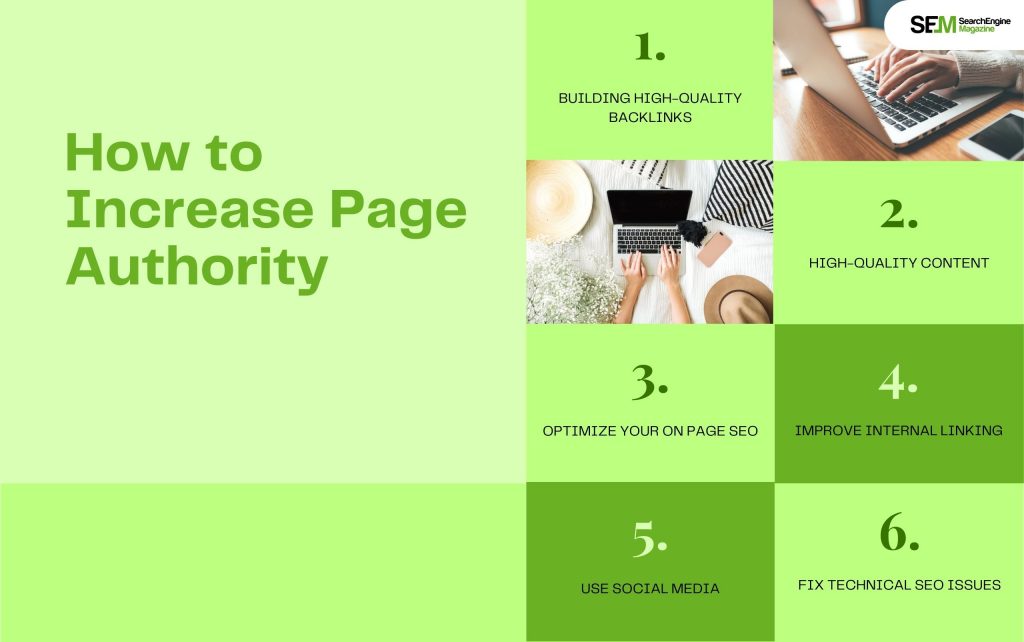
Increasing page authority is a combination of techniques. Most importantly, backlink quality and quantity are significant. Here are some effective ways to improve your page’s authority:
Backlink Profile is the most influential factor that influences PA. A basic strategy should include earning backlinks from relevant and authoritative domains. Quality links from trusted sources make a page appear trustworthy and significant to search engines.
Content is the king of SEO. Content should answer user queries, be valuable, and be shareable. Pages with high-quality, informative content will likely attract backlinks and improve Page Authority.
Ensure that your page is optimized to search engine optimization by considering keywords relevant, meta tags optimized, adding alt for images, and placing header tags in the right order. Optimization of pages ensures they perform at a better level in search results.
Strengthen your internal linking structure by linking to the page from other high-authority pages within your website. That way, search engines will likely discover and index your pages and improve PA.
Sharing content on social media can drive traffic to your page, making it more visible and attracting more backlinks. This may help boost your Page Authority.
Make sure the page loads fast, is mobile-friendly and has no technical issues that may prevent search engine crawlers from accessing it. The better the optimization and user-friendliness of the page, the more likely it will rank higher and gain authority.
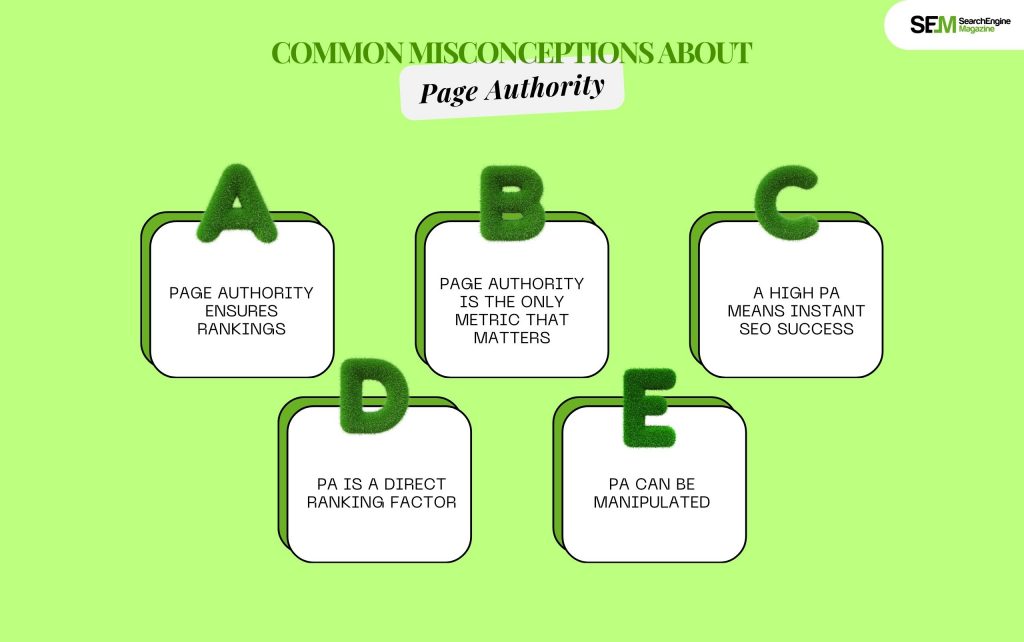
There are still many misconceptions about Page Authority despite its importance, leading to confusion:
Page Authority is one SEO metric that will predict the probability of a page ranking on the search engine.
While not directly being a ranking factor, a higher PA normally would provide more chances of succeeding in SEO.
Improving page authority requires quality backlinks, good on-page SEO, high-value content, and a healthy technical SEO structure. One way to understand and get better is to stay ahead of the game, and since the world of SEO changes rapidly, this is included in any form of successful digital marketing.
You May Like To Read This:
Nabamita Sinha loves to write about lifestyle and pop-culture. In her free time, she loves to watch movies and TV series and experiment with food. Her favorite niche topics are fashion, lifestyle, travel, and gossip content. Her style of writing is creative and quirky.
View all Posts
How To Know If Someone Blocked You On iMessag...
Apr 16, 2025
7 Website Design Mistakes That Are Hurting Yo...
Apr 16, 2025
Programmable Dynamic SEO for Location-Based P...
Apr 15, 2025
Google Boba Game: How To Play This Fun Game B...
Apr 11, 2025
Which Is The Best Video Search Engine Of 2025...
Apr 11, 2025

